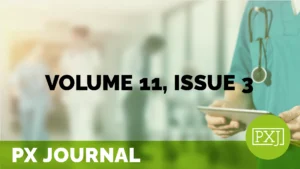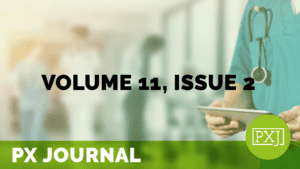Declining a Qualified Medical Interpreter: Helping Patients Understand the Risks

By Tamara Cardoso, UConn Health
At UConn Health, we are committed to putting patient experience at the center of our care. We recognize that delivering safe, high-quality, patient-centered care necessitates effective communication at every interaction. In healthcare, ineffective communication can lead to heightened anxiety, increased stress levels, and potential misunderstandings. Importantly, it can pose significant medical and legal risks, diminishing our quality of care. We support and ensure our patients’ communication needs are met.
We commit to providing equal healthcare access to all our services for all individuals, regardless of their communication needs. This includes those with limited English proficiency (LEP), deaf, hard of hearing (HOH), visual impairment, or special communication needs. Our patient’s needs are important to us, and we strive to meet them in accordance with state and federal legislation and accrediting agency guidelines for interpreter services. Our language and interpreter services, including in-person sign language interpreters, qualified medical interpreters, video phones, and on-site listening devices and other auxiliary aids, are available around the clock. Additionally, we offer translation services for written materials. These services are readily accessible and free to patients and their companions.
Identifying language needs is a vital part of our healthcare delivery process. We take this responsibility seriously and ensure we identify language needs during initial encounters, whether by phone, in person, or through observation. The patient’s preferred language, including interpreter documentation, is carefully reviewed, and updated in our electronic health record at each outpatient, emergency, or inpatient encounter. Our administrative and clinical care teams document and assess the patient and their companions’ communication needs as part of our standard interpreter services workflow.
We respect our patients’ autonomy and acknowledge their right to decline the help of a qualified medical interpreter. However, patients and their companions must understand the potential risks of declining interpreter services. This decision may affect the patient’s ability to make well-informed healthcare decisions, potentially leading to misunderstanding or misinterpreting medical terms. It can also result in incomplete or inaccurate shared medical information or the unintended disclosure of medical conditions that the patient may wish to keep private.
In collaborating with our Epic teammates, our Interpreter Services Coordinator developed an interpreter services flowsheet tool to capture our patients’ and their companion’s language preferences, interpreter needs, and other pertinent communication requirements, ensuring their communication needs are honored and met. If a patient or companion declines the use of an interpreter, the risks of declining are thoroughly explained and documented in the patient’s electronic health record. As part of the standard workflow, the Risks of Declining form must be provided in the patient’s or companion’s preferred language and documented at each encounter. Even if a patient and/or their companion decline their right to an interpreter, they can request a qualified interpreter at any time to ensure clear communication and minimize communication risk.
This important work helps us continue to provide safe, high-quality, patient-centered care and is an integral part of our continual commitment to equal healthcare access and delivery for the diverse patient communities we are honored to serve.
Tamara Cardoso, CPXP
Tamara’s journey in Patient Experience began in 2019. As a dedicated Patient Experience Performance Improvement Specialist at UConn Health, she is committed to enhancing the human experience through collaboration with leaders and teams to champion respect, mindful communication, and teamwork to deliver top-quality patient care.
About UConn Health
UConn Health is an integrated academic medical center based on a strong foundation of groundbreaking research, first-rate education, and quality clinical care. A commitment to human health and well-being has been of utmost importance to UConn Health since the founding of the University of Connecticut Schools of Medicine and Dental Medicine in 1961. In just over 50 years, UConn Health has evolved to encompass research endeavors and innovate both practical medicine and methods of educating the practitioners of tomorrow.
Related content
-
 Innovation & Technology | Patient Family & Community Engagement
Innovation & Technology | Patient Family & Community EngagementBuilding Trust in Healthcare: Insights from UAB Medicine’s Humanistic Care Study
PX MARKETPLACE – 2pm ET / 1pm CT / 12pm MT / 11am PT – Join Chris Brainard, Associate Vice President at UAB Medicine, and Amber Maraccini, VP of Healthcare Executive Advisory at Medallia, for a fireside chat on UAB’s innovative strategies to build trust in patient care. Explore how provider behaviors—like listening patiently and
Learn more -
 Patient Family & Community Engagement
Patient Family & Community EngagementConsumers’, Family Members’, and Health Practitioners’ Perspectives on Increasing Activity Engagement of Older Patients Admitted to Geriatric Hospital Units
The aim of this study was to explore the perspective of consumers, family members, and health practitioners on increasing patient activity engagement in a Geriatric Evaluation and Management (GEM) Unit. This study followed a qualitative phenomenology approach. Semi-structured interviews were conducted, audio-recorded and transcribed verbatim with consenting patients (n = 12), family members (n =
Learn more -
 Patient Family & Community Engagement
Patient Family & Community EngagementResearch Imitates Life: Researching Within Your Lived Experience
This personal narrative article seeks to bring awareness to and provide an overview of the various aspects that come with being a lived experience researcher including the host of benefits and challenges that come with conducting research within one’s own area of lived experience.
Learn more
